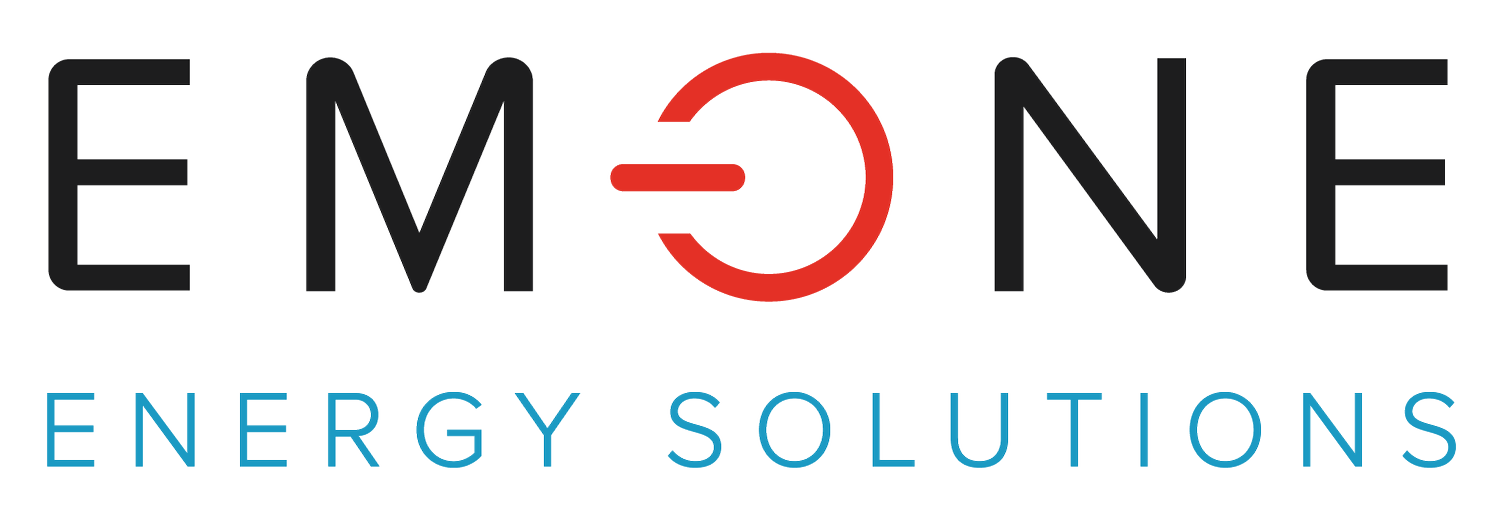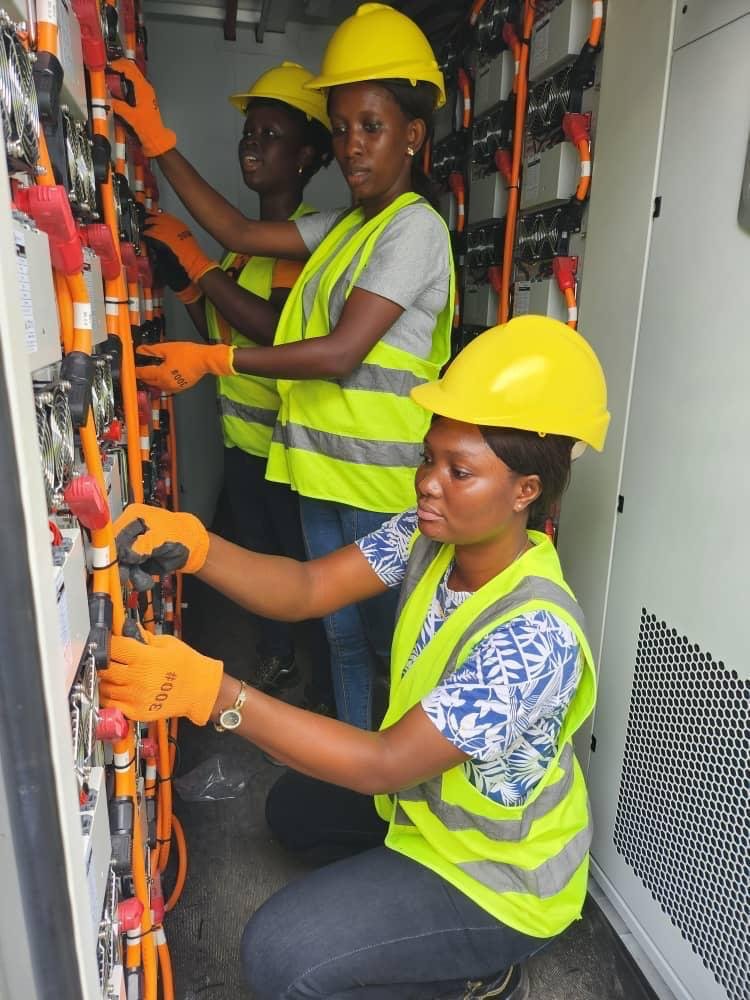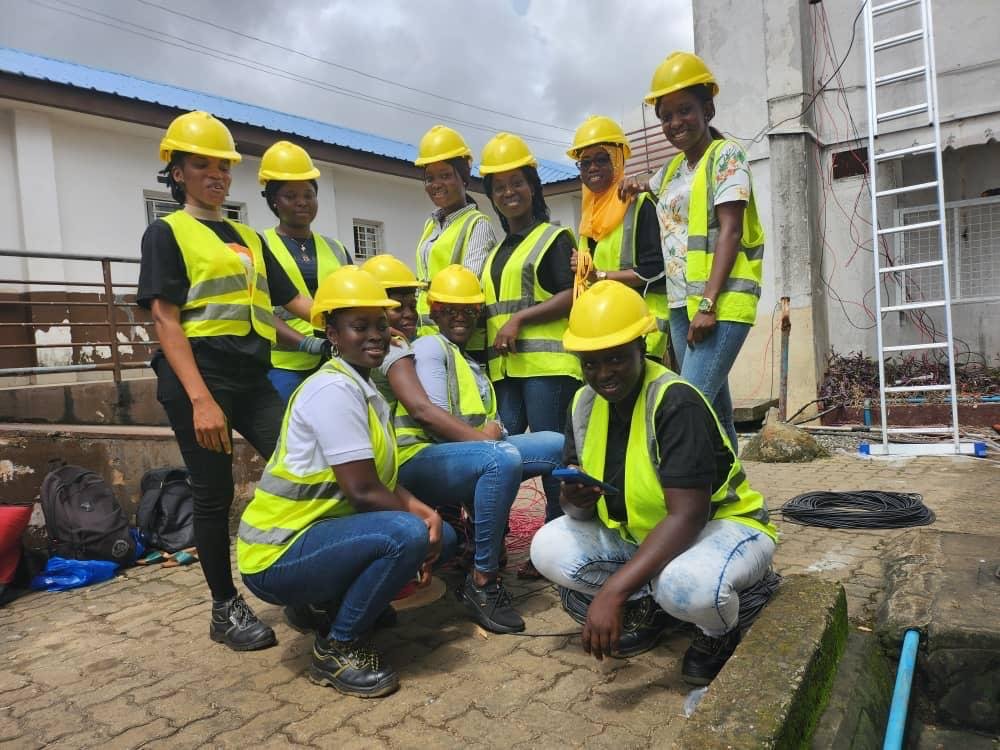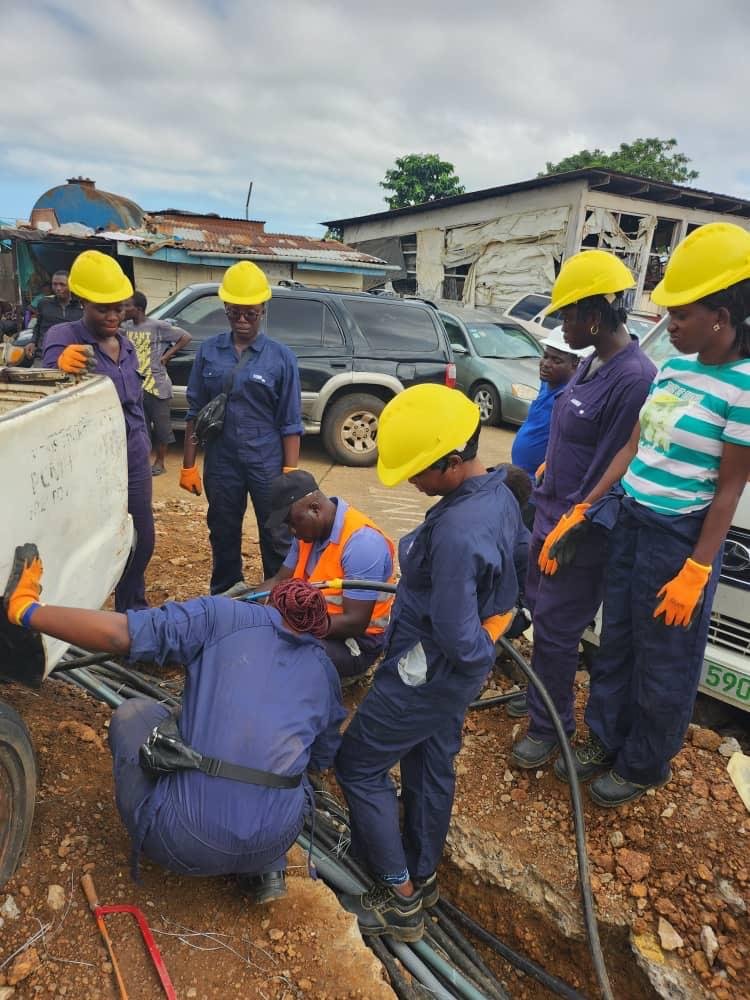Sierra Leone Healthcare Electrification Project
Sustainably Powering Health Facilities
Access to reliable and sustainable energy plays a pivotal role in strengthening Africa’s healthcare landscape. The Sierra Leone Hospital Electrification Project, implemented by EM-ONE in partnership with SEforALL, addressed the energy access gap in health facilities across the country. The project delivered innovative sustainable electrification solutions that positively impact healthcare delivery for over 8.7 million people.
Ola During Children’s Hospital & Princess Christian Maternity Hospital, Freetown - Photo credit ©EM-ONE
Introduction
As experts in sustainable energy and powering health, EM-ONE was selected to implement Sustainable Energy for All (SEforALL)’s first infrastructure project: a portfolio of solar microgrids that would power hospitals and clinics in Sierra Leone. The project was funded by the UK’s Foreign, Commonwealth & Development Office (FCDO), and managed by Crown Agents. It represented EM-ONE’s expansion into Sierra Leone and will contribute to a larger effort led by the Sierra Leonean government and numerous donors to transform healthcare electrification within the country.
This ambitious project has significantly advanced healthcare in Sierra Leone by deploying solar microgrids with a total installed capacity of 4 MWp of solar power and 7.3 MWh of battery storage, across three phases. These systems provide reliable electricity to 43 health facilities, including 18 high-impact hospitals and multiple community health centers (CHCs). This portfolio is set to revolutionize healthcare accessibility for the Sierra Leone’s population - over 8.7 million people who rely on these critical health facilities.
Context
Electrification in Sierra Leone
Access to electricity in Sierra Leone is a critical challenge that not only profoundly impacts the healthcare sector, but also acts as a significant impediment to the country's economic and social development. Historically, the country has struggled with extreme poverty, ranking 174th out of 183 countries in the Human Development Index. Despite making remarkable strides and implementing reforms in recent years, challenges in weak infrastructure and widespread rural and urban impoverishment persist.
With just 27.5% of the population having access to electricity (as of 2021), and a mere 4.9% in rural areas, Sierra Leone falls well below the Sub-Saharan Africa average of 50.6%. Compared to 13.5% of ten years ago, this is a great achievement, however, it is not enough to meet the country’s energy needs. Sierra Leone's installed power capacity per capita ranks among the lowest globally, providing approximately 150 MW for a population exceeding 8.7 million and expected to grow to 8.8 by 2025.
Healthcare in Sierra Leone
Lack of reliable energy severely impacts healthcare in Sierra Leone. Many facilities are under-resourced yet crucial in combating disease epidemics. Poor power infrastructure hinders essential medical services, leading to poor health outcomes and risking lives. In cities, frequent blackouts disrupt critical procedures, while in remote areas, the absence of power limits patient care and medical equipment use.
To address this, the government is reforming the energy sector, expanding access to affordable, renewable power. The country’s leaders have set an ambitious goal of reaching 85% renewable energy capacity by 2030 and created enabling policies to support their targets. The off-grid and mini-grid sector is set to play a pivotal role in achieving this goal – and the Sierra Leonean government has taken inspiration from more developed mini-grid markets (e.g. Nigeria) to enable their energy transition plans.
140 kWp & 290 kWh microgrid delivered by EM-ONE at Kabala Hospital - Photo credit ©EM-ONE
The solution – Solar microgrids powering hospitals and clinics across Sierra Leone
In December 2022, SEforALL, working closely with the Ministry of Health and Sanitation (MoHS) in Sierra Leone, introduced the Sierra Leone Hospital Electrification Project.
The initiative highlighted the integration of renewable and dependable energy solutions in hospitals to enhance patient care. This pilot project was implemented by EM-ONE and has since grown into flagship portfolio of powering health projects across the country.
The project was funded by the UK, and SEforALL selected Crown Agents and Tetra Tech as the project managers and EM-ONE as the EPC firm for the project.
Phase 1: Solar + storage microgrids delivered at 6 major hospitals, including Ola During Children’s Hospital and Princess Christian Maternity Hospital, a combined capacity of 797 kWp of solar PV and 1497 kWh energy storage, commissioned in December 2023.
Phase 2: Solar + storage microgrids delivered at Kailahun Hospital and 25 community health centers (CHCs), a combined capacity of 300 kWp of PV and 600 kWh energy storage, commissioned in January 2025.
Phase 3: Solar + storage microgrids will deliver at 11 general hospitals, including Lakka, Port Loko, Makeni and Kenema Government Hospitals, for a combined capacity of 2.9 MWp PV capacity and 5.2 MWh energy storage, by June 2025.
To maximize efforts in powering healthcare in the country, SEforALL initially conducted detailed energy audits at major hospitals to identify opportunities to replace inefficient and polluting diesel generators with sustainable energy.
The project integrated a Women in STEM traineeship, co-implemented by SEforALL’s Gender and Youth programme and EM-ONE, designed to offer hands-on technical training to 24 female STEM graduates. This initiative not only opened doors for the graduates in the energy sector but also left a lasting positive impact as they contributed to the health electrification project. EM-ONE strongly believes that localization and local capacity building is essential for long-term project success. The trainees received practical experience and classroom training on solar PV project implementation, including participating in the installation process at the targeted hospitals.
First cohort of the Women in STEM traineeship - Photo credit ©EM-ONE
Phase 1
Building on this assessment, six key hospitals were chosen for the first phase of the Sierra Leone Hospital Electrification Project:
Ola During Children’s Hospital, Freetown
Princess Christian Maternity Hospital, Freetown
Kambia Government Hospital, Kambia
Masanga Hospital, Masanga
Kabala Government Hospital, Kabala
Bonthe Government Hospital, Bonthe
Our solutions were designed using a facility-wide and needs-driven approach. For this project, we opted for a modular, plug-and-play approach to procurement and implementation of our solar + storage microgrids, to achieve the best results: a combined total of more than 0.6 MWp of PV capacity with 1.5 MWh energy storage.
The solar microgrids were a combination of roof, ground and container-mounted depending on the site and space available. The systems were designed with high-quality and durable components from Canadian Solar and Alpha ESS, amongst others. They were equipped with remote monitoring and control capabilities that enable continuous monitoring of the system’s performance and energy usage.
The project included operation and maintenance (O&M) for the Phase 1 systems for 18 months. EM-ONE conducted O&M training sessions at each of the six hospitals for their staff and ensured that the beneficiary hospitals were aware of their responsibilities in maintaining the systems effectively. These trainings were completed in December 2023 prior to their official handover to Sierra Leone’s Ministry of Health and Sanitation.
Four STEM interns from the first cohort who participated in the Phase 1 Women in STEM Internship program were hired full-time by EM-ONE to support the operation and maintenance of the systems - and help these early career professionals build their end-to-end knowledge of solar projects.
Phase 2
The scope of the project was then extended to include the sustainable electrification of 25 community health centers (CHCs), which are frontline peripheral healthcare units serving more rural areas, and Kailahun General Hospital.
EM-ONE designed a modular, plug-and-play approach to procurement and implementation of solar + storage microgrids. This strategy was adopted to expedite the overall delivery of the energy solutions and provide sustainable power to these health facilities as soon as possible. Each standard building block for the CHCs has a capacity of 6.6 kWp PV and 10.1 kWh energy storage. The total capacity to be delivered at the CHCs was 198 kWp PV and 303 kWh energy storage.
Kailahun General Hospital’s microgrid had a PV capacity of 110 kWp and energy storage capacity of 294 kWh. In addition to powering the hospital, it also supplied electricity to the staff quarters. All the systems delivered in Phase 2 leverage the same high-quality Alpha-ESS storage and remote monitoring system as those delivered in Phase 1.
Phase 2 was commissioned in January 2025.
110 kWp & 294 kWh solar microgrid delivered by EM-ONE at Kailahun Hospital - Photo credit ©EM-ONE
Phase 3
The last phase of the project focuses on expanding solar and battery storage microgrids to 11 general hospitals across Sierra Leone:
Connaught Government Hospital, Western Area Urban
King Harman Road Satellite Hospital, Western Area Urban
Rokupa Government Hospital, Western Area Urban
Lakka Government Hospital, Western Area Urban
Port Loko Government Hospital, Port Loko
Makeni Government Hospital, Bombali
Magburaka Government Hospital, Tonkolili
Koidu Government Hospital, Kono
Moyamba Hospital, Moyamba
Kenema Government Hospital, Kenema
Pujehun Government Hospital, Pujehun
This phase adds a combined capacity of 2.9 MWp PV and 5.2 MWh of battery storage, ensuring a stable and resilient energy supply for these critical healthcare facilities. By June 2025, this expansion will further strengthen the country’s healthcare infrastructure, improving access to reliable electricity and enhancing the quality of medical services for millions of people.
Benefits and impact
Reliable access to energy 24/7: The solar microgrids provide round-the-clock renewable power to the general hospitals and health centers, to improve the delivery and quality of healthcare services and better health outcomes across Sierra Leone.
Quality, scalability and reduced construction time: EM-ONE's plug-and-play approach minimizes construction time while ensuring the delivery of rugged, high-quality systems built to withstand the test of time.
Commercial sustainability: Leveraging D-RECs (Renewable Energy Certificates, for the certification of distributed renewable energy generated near to the point of use and not connected to larger grids) further enhances the commercial sustainability of the project over its lifetime. D-RECs, with energy generation data requirements met by our systems' remote monitoring, contribute $30 USD/MWh produced on a quarterly basis, further supporting the overall sustainability of the project.
Local capacity building and female STEM training: This training program for young women not only helped promoting gender equality and enhancing employment and career opportunities for women in the renewable energy sector, but also helped building local capacity in Africa, with long-term positive results for the continent’s development.
This project has and will continue to provide modern, affordable, and sustainable electricity services to healthcare facilities which used to be unelectrified or under-electrified – bringing significant benefits to the delivery of health services as well as the surrounding communities for beneficiary HFEs in Sierra Leone. By taking a holistic approach to sustainability over the life of this project, its impact extends from addressing electricity shortages, to improving health service delivery and building local capacity. EM-ONE is proud to be the delivery project that not only enhances healthcare services but also contributes to the overall development of Sierra Leone’s energy sector.
Conclusion
For healthcare systems in Africa, access to electricity can often make the difference between life and death. Electricity supports night-time healthcare delivery, the use of modern medical equipment for both diagnosis and treatment of diseases and the preservation of vaccines, blood and medicines.
For EM-ONE, the Sierra Leone Hospital Electrification Project represents a continuation of our commitment to bridging the gap between energy and healthcare. Having powered over 150 clinics and hospitals across Nigeria and Sierra Leone, our focus on sustainable infrastructure underscores the belief in equitable access to good healthcare and energy for all.
157 kWp & 275 kWh solar microgrid delivered at Masanga Hospital by EM-ONE - Photo credit ©EM-ONE
Project Partners
Sustainable Energy for All (SEforALL) is an international organization that works in partnership with the United Nations, leaders in government, the private sector, financial institutions, civil society and philanthropies to drive faster action toward the achievement of Sustainable Development Goal 7 (SDG7), which calls for universal access to affordable, reliable, sustainable and modern energy for all by 2030, and the reduction of greenhouse gas emissions to limit climate warming in line with the Paris Agreement on climate.
EM-ONE is a Canadian-Nigerian engineering and technology firm, advancing the sustainable energy transition in Africa. The company has successfully designed and built over 150 solar microgrids with total PV capacity of over 14 MWp that sustainably power hospitals and clinics in Nigeria and Sierra Leone. It is currently building on this success to expand its impact in powering healthcare across Africa.
Crown Agents is a not-for-profit international development company that works in partnership with clients (ministries, governments, institutions, donors, foundations, philanthropists and the private sector) to design and implement practical solutions to their needs, including meeting their Sustainable Development Goals (SDGs) and improving the quality of life and opportunities for their citizens. Crown Agents was responsible for the project management aspect of Phase 1 and Phase 2 the project.
Tetra Tech is a global consulting and engineering firm that provides innovative solutions in water, environment, sustainable infrastructure, and international development. They offer services for a wide range of clients, including government agencies, development organizations, and commercial and international sectors. Tetra Tech was responsible for the project management aspect of Phase 3.
The Sierra Leone Hospital Electrification Project has been funded by the UK’s Foreign, Commonwealth & Development Office (FCDO) and implemented in close coordination with Sierra Leone’s Ministry of Health and Sanitation (MoHS).













